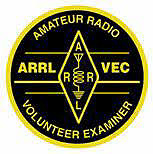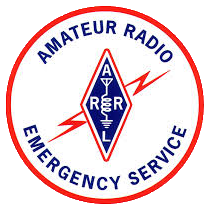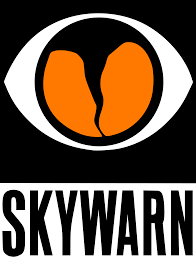ARES, at the national, state, and local level often enters into agreements with other communications organizations, non-governmental organizations (NGOs), and government at different levels. These agreements, usually called memoranda of understanding or an MOU for short, define the relationship between ARES at different levels and these entities.
The MOU provides a framework under which we provide mutual support, depending upon where the need is. Setting aside local MOUs, such as the one between Carroll County ARES and Tanner Medical, the state and national ARES organizations have MOUs that extend to the local ARES organizations as well. These organzations include the Red Cross, Salvation Army, Civil Air Patrol, Citizen Corps, Natonal Weather Service, and others.
In many cases these entities operate their own corps of Amateur Radio Operators that ARES volunteers would work with in the event the MOU is invoked and ARES support is requested. Many ARES members are also members of these alternative organizations, and while volunteerism is promoted in amateur radio, such dual-allegiance can cause problems in the even two different organizations call up their amateur radio operators at the same time.
That being said, here are some NGOs that have their own core team of operators:
1) Civil Air Patrol. This is one organization where dual affiliation serves a potentially necessary service. Civil Air Patrol is allocated their own frequencies, including duplex VHF frequencies, which are not within the ham band(s). However, operating practices are very similar, and amateur radio operators could perform a useful service by relaying data from CAP frequencies and the amateur radio bands.
2) Salvation Army. The Salvation Army, as part of its operating plan, maintains an amateur radio corps, called the Salvation Army Team Emergency Radio Network (or SATERN for short). This group utilizes amateur radio operators and functions on the amateur radio bands. As a result, if circumstances were to overwhelm the Salvation Army resources, additional amateur radio operator support may be needed, and ARES would be the first organization contacted. Be aware, the Salvation Army does extensive additional training and background checks of its own team members.
3) Red Cross. The relationship between ARES and the Red Cross is much the same as with the Salvation Army, all the way down to the more extensive background checks and specialized training beyond the basic ARES requirements.
4) National Weather Service. The National Weather Service operates a volunteer storm spotter program, which includes amateur radio operators, called SKYWARN. Carroll County's Emergency Management Office schedules National Weather Service SKYWARN classes every other year to maintain its “Storm Ready” status. While SKYWARN is not limited to amateur radio operators, the NWS utlizes staff and volunteers to manage amateur radio reporting of storm conditions when SKYWAEN is activated.
There are many other organizations, including REACT, Citizen Crops, United States Power Squadrons (boating), and others. While we encourage amateur radio operators to be involved in ARES, we also support those who feel called to serve through these other organizations.




